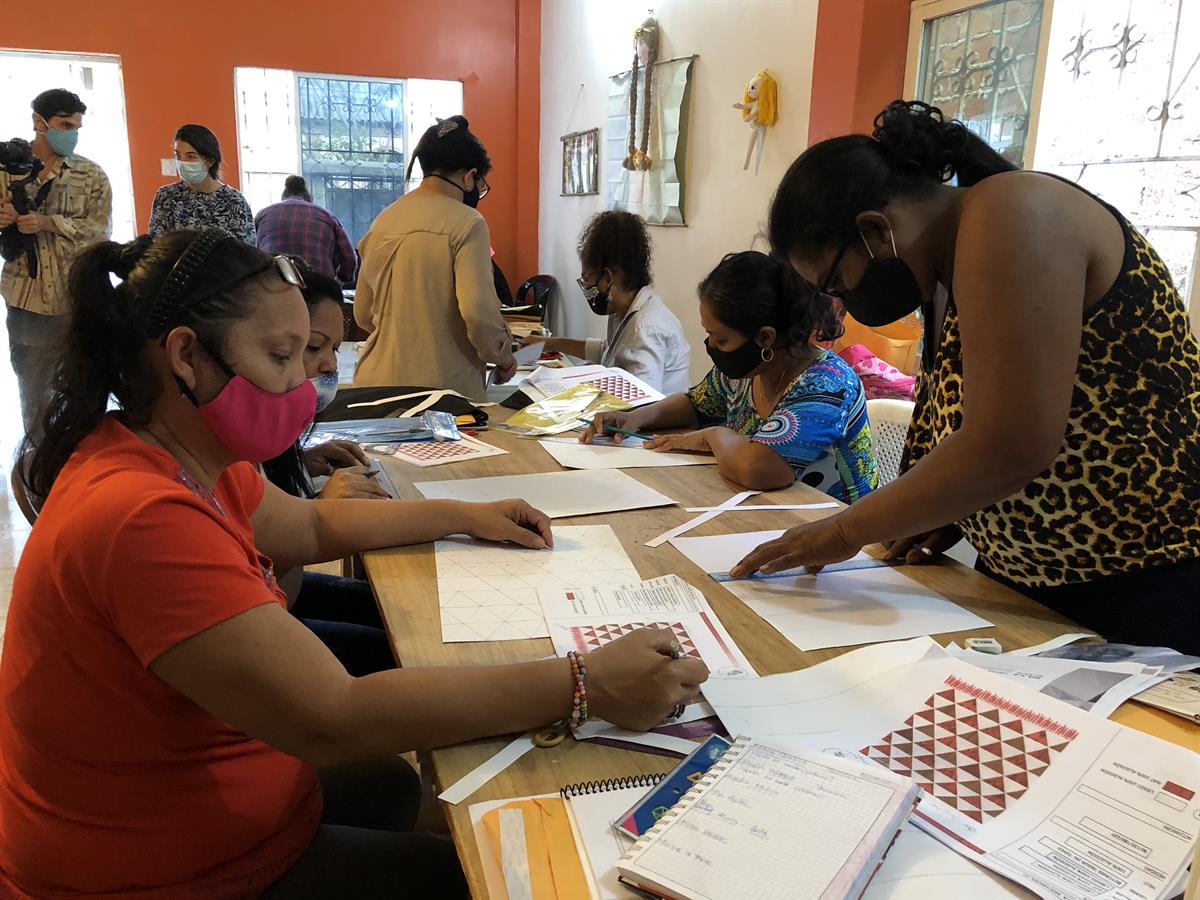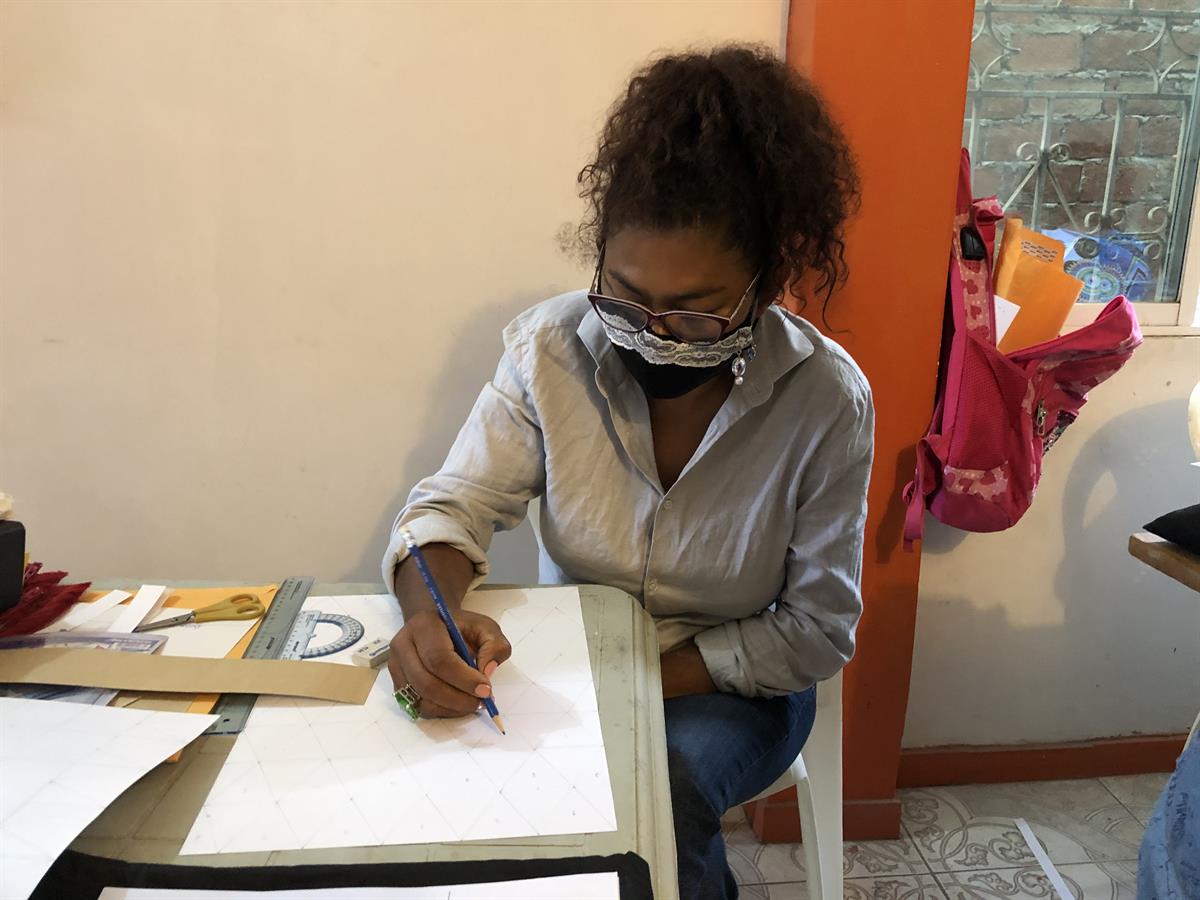The bright eyes of eight Venezuelan migrant and refugee women showed the excitement and expectations they had for living the next four days, some in the community center of the Leonidas Proaño parish, and others in their homes. The purpose that brought them together was to receive a sewing workshop organized by AVSI Foundation in coordination with the Allpamamas organization.
The desire to cultivate the art of sewing, a trade that has brought them many joys and financial help for them and their families, prompted them to sign up and put aside any type of activity during those days.
The workshop was different from those they have received before, because in addition to sewing, it included topics such as the impact of the textile industry on the environment, patterns, telling stories through products and putting prices on them.
An important part of the activity consisted of developing stories from co-creation and storytelling, in which, with laughter and tears, the participants shared their experiences as migrant women, about their trips and motivations that led them to leave their country of origin.
Based on these shared experiences, four prototypes of household products were created, which will be sold abroad, mainly in European countries and the United States, through the digital platform “MADE51”, an initiative of UNHCR, the UN Agency for Refugees, which sells crafts made exclusively by hand, by people in situations of human mobility.


The ACTIVADOS project, which AVSI also runs with the support of UNHCR in Ecuador, is the promoter of this activity that seeks to create sources of economic income for migrants and refugees.
As a result of this “Sewing without Borders” workshop, the profits that will be obtained from the sale of textile products will be destined to the entrepreneurs who made them.
Johana, one of the beneficiaries, mentions that the course seemed very good to her, because she learned a lot and during her work at her home she delved into some topics with the instructor's guidance. "I hope that the course continues, that the prototypes are accepted and the products can be marketed, in order to start production" she tells.